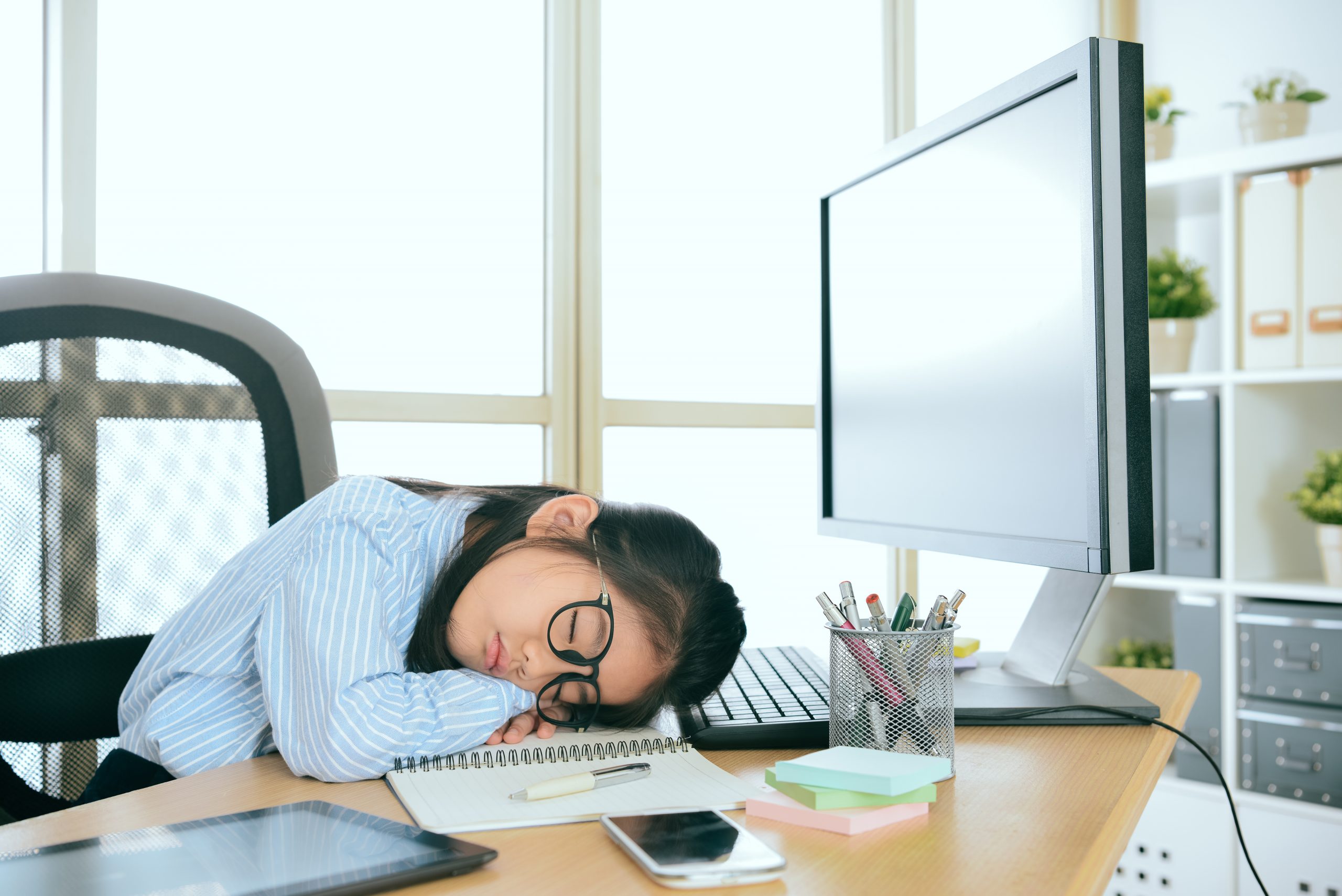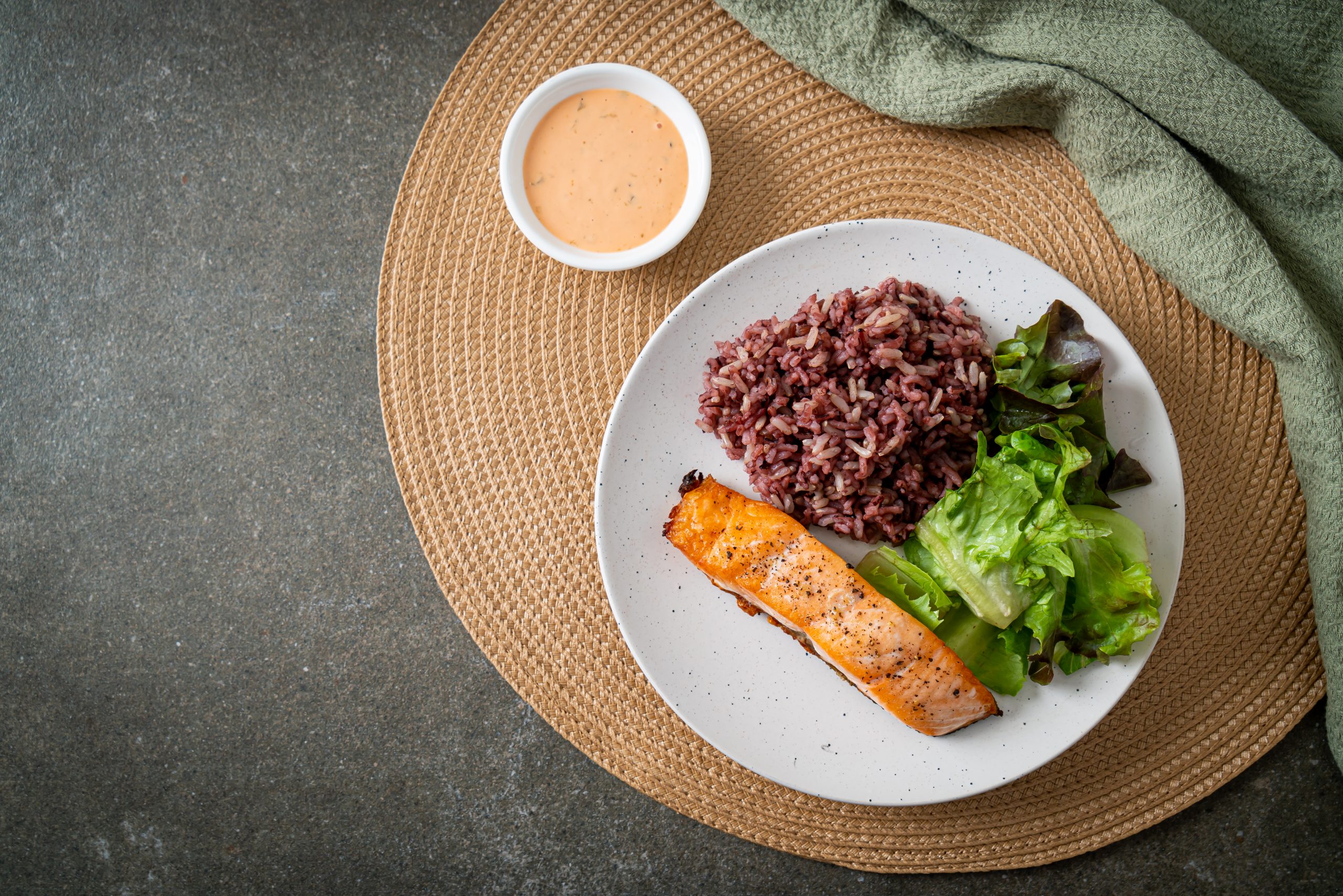Have you ever gone to lunch, excited to break away from your desk and enjoy a delicious meal at the food court or hawker centre, only to feel exhausted afterwards? Do you find yourself fighting the urge for an afternoon nap after lunch? You’re not alone.
Welcome to the world of food coma—a common experience that occurs after a big meal. The good news is that there are steps you can take to avoid it. At Aventis Wellness, we understand how frustrating it can be to take a break for lunch and return feeling exhausted, so we’ve put together this guide on how to stop feeling tired after eating.
What Is Food Coma?

Food coma is a state of physical tiredness and mental sluggishness that often follows a large meal. It’s commonly known as the “post-lunch slump” and most of us have experienced the feeling of wanting to curl up in bed or on the couch and take a quick nap after having lunch. Food coma happens because of the energy it takes to digest a big meal. As the body works to break down what’s been eaten, it can drain energy, leaving you feeling like you need to sleep. It’s not just the amount of food that can cause food coma, but what you eat, too. Eating something that’s high in calories and carbohydrates can put your body into a state of “overdrive” as it tries to break down the meal, making it even harder to fight the urge for sleepiness.
What are the Causes of Food Coma
While there might be many factors that contribute to the sudden drop in alertness from the early afternoon onwards, science suggests that it has much to do with the chemistry of our body.
Let’s first look at serotonin. This is a chemical produced by the brain and intestines which transmits signals between nerve cells in the brain and helps regulate functions like mood, appetite, and sleep. Serotonin is synthesized from tryptophan, which we obtain from eating foods high in fat and protein such as red meat, dairy products and poultry. Simple carbohydrates are also another culprit: eating a meal high in carbohydrates causes a spike in insulin, which lets more tryptophan enter your brain. A hefty meal during lunchtime means more serotonin is produced—which can lead to feeling drowsy.
Another factor at play is our body’s internal clock, or circadian rhythm. Although we have phases of sleep at night, a drop in alertness happens around midday too—our body needs a natural break for refuelling, so most likely you weren’t able to avoid an afternoon slump altogether!
How to Avoid Food Coma After Lunchtime
So how do you beat food coma? Here are a few tips from us that can help:
Balance meals with complex carbs, fats, protein and fibre

You may not have realised this, but one of the best ways to avoid post-lunch food coma is to eat a balanced meal that contains complex carbs, fats, proteins and fibre. Why? Because complex carbs, fats and proteins slow down the digestion process, while fibre helps by regulating blood glucose levels.
Think of it like this — if your meal is made up of only carbs (like a sandwich), then the glucose will be absorbed quickly into your bloodstream and make you sleepy. But if you combine that sandwich with something that has fat, protein and fibre (like adding some cheese and an apple)? Then digestion will take longer, allowing for more sustained energy throughout your day.
When it comes to eating balanced meals to avoid food coma, here’s what you need to look out for:
- Complex carbs like legumes, beans, oats and root vegetables
- Healthy fats like olive oil or avocados
- Protein sources like eggs or tofu
- Plenty of fibre from wholegrains, fruits & vegetables.
In one paragraph, include examples of dishes to order in food courts and hawker centres that are nutritionally balanced and that can help avoid food coma.
When eating at food courts and hawker centres, here are some delicious and nutritionally balanced meals that are sure to keep you energized throughout the day:
- Seafood Hor Fun, which provides a good mix of complex carbs from Hor Fun noodles, protein from the seafood, and a healthy fat from the egg sauce
- Chicken Rice with steamed chicken and vegetables, plus some wholegrain rice to provide fibre
- Laksa with its combination of wholegrain noodles, protein from eggs, and the healthy fats of coconut milk served with a side of vegetables
Get up from the desk every hour and limit portion sizes

The best way to make sure you don’t slide into a food coma after lunch is to split large meals into several smaller ones. Eating too much at once can overwhelm your digestive system, leading to tiredness and brain fog. To avoid this, it’s best to take regular breaks throughout the day for light snacks and drinks. And when mealtime comes around, try and stick to small portions of healthy food.
You should also make sure to get up from your desk a few times every hour or so, even if it’s just a quick stretch or walk around the office. This will help you stay alert, plus it’s good for your posture. When you’re eating, remember to chew each bite slowly and savour the different tastes, smells and textures of what’s on your plate. This helps with digestion and can even increase overall alertness after a meal.
Get enough sleep the night before

Getting enough sleep is extremely important when it comes to avoiding food coma after lunch. A good night’s sleep will help your body prepare for the day ahead and boost your energy levels so that you don’t feel completely zonked after eating your lunch. Here are a few tips from AW on how to get a good night’s rest:
- Create a bedtime routine: Try and stick to the same pre-bed routine every night so that your body knows when it’s time for sleep
- Avoid technology before bed: Put away any devices at least an hour before you plan on sleeping, as screens can disrupt the natural circadian rhythm of your body
- Keep the room cool: The optimal temperature for a restful sleep is between 15 to 20 degrees Celsius
- Exercise regularly and stay hydrated, but avoid strenuous workouts late at night
By following these simple steps, you’ll get a better quality of rest and be more prepared to tackle work after lunch without feeling tired or groggy!
Conclusion
There you have it—now you have the tools to beat food coma and stay productive even after a big meal.
If you’re still struggling with feeling tired after meals, it might be a sign of a deeper issue, such as uncontrolled blood sugar or an undiagnosed sleep disorder. In those cases, it’s best to consult a healthcare professional as there could be underlying health issues at play.
About Our Lunch and Learn Programmes
At Aventis Wellness, we offer a holistic approach to Corporate Mental Wellness through our special curated workshops by our team of Mental Wellness Coaches. Our Lunch and Learn Programmes are focused on the three key components of wellness — “Mind, Body, Soul.”
About Aventis Wellness
Aventis Wellness (AW) is an evidence-based Employee Assistance Program (EAP) and Counselling Provider. At Aventis Wellness, we recognize the importance of mental wellness and strive to offer affordable and accessible counselling and coaching services in full confidentiality. We bring together a community of industry practitioners, mental wellness experts, university partners, counsellors, therapists and learners.
We are here to support you and all companies towards a healthier and more engaged workforce by providing workplace well-being solutions. Many of our practitioners are highly experienced and come from diverse backgrounds. They offer wide-ranging areas of counselling catered to meet the needs of different companies or individuals.

